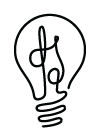Hack Confirmation Bias: Keep a Kudos File

“The problem with worry is that we attract the very thing we are trying to avoid. We live a self-fulfilling prophecy. Life keeps its agreement with us through our beliefs, because whatever we think about, we bring about. Life is like a mirror. It reflects back whatever image we present to it.”
— Dr. Robert Anthony, author
A college friend of mine, Phillip, had a habit of being incredibly sensitive to people judging and second-guessing him. And you know what? It happened all of the time. Despite his success with putting himself through school, managing a disability, and working with limited resources, when he tried to get support for his endeavors, people still seemed to question his abilities. I couldn’t understand for the life of me why he had to fight the battles that he did, because I could clearly see all of his talents and abilities, his hard work ethic, and his ability to effortlessly generate business ideas. After a point, he began to expect that people would judge him and discount his capabilities. Phillip’s expectations of being judged went on to color his perception of himself. This self-perception influenced his behavior and demeanor and consequently set the stage for how he interacted with people – and how they responded to him. He saw the potential for rejection in the form of judgment and criticism everywhere, and he found it. It became a self-fulfilling prophecy.
When we are afraid of being judged, almost everything said to us seems like a condemnation of some sort. We’re constantly on the lookout for a comment, a facial expression, a tone of voice that proves to us just what we suspected: that this person or those people are judging us. With the Inner Critic in the driver’s seat, we find these dreaded negative assessments all too easily due to another inclination of the brain: confirmation bias.
Confirmation bias is the tendency of the brain to seek out evidence to confirm deeply held beliefs or hypotheses while dismissing or ignoring any evidence that doesn’t support them. Under the influence of confirmation bias, ambiguous information is interpreted to support the held belief or hypothesis, situations are remembered selectively (particularly emotionally charged situations), and mistaken beliefs are acted upon as though they are true. It’s important to bear in mind that confirmation bias is nonpartisan: such bias can apply to either the negative or the positive. The problem is that we usually use it to confirm our fears instead of our hopes.
We see what we expect to see. When it comes to having Judgment Dread, not only do we look for evidence that people are judging us, but then the confirmation of our fears about how we’re not okay negatively impacts how we see ourselves. When we don’t feel seen and supported, and thus feel rejected, we end up internalizing people’s judgments and strong criticisms as a truth about us. In his book The Inner Game of Work, author Tim Galwey provides a spot-on description of this phenomenon: “…if I identify with a concept such as ‘I am not good enough,’ I will probably start looking at my feelings and behaviors through the lens of that concept. I will also interpret how others view me through that same lens. And I will no doubt be able to find ample ‘evidence’ to support my basic negative self-image. The negative concept is now fortified and will be used to find more supportive evidence.” Just like in Phillip’s case above, it’s a self-fulfilling prophecy.
Negative confirmation bias is one of the many tools the Inner Critic uses to ensure that we will modify our behavior to avoid any potential future hurt. But avoiding hurt is rarely what comes of it. This version of cognitive bias warps our perceptions of the world around us into one different from what actually is, enticing our brains into an un-fun house of mirrors that reflect our amplified fears back to us. When Judgment Dread is at the helm of your consciousness, then so much of what you see and think will be from a self-judging standpoint.Who needs other people to be judgmental and critical when we can do it ourselves with such venom? Not only do we judge ourselves, but we also begin to inhibit behavior and hold ourselves back. We confirm people’s unfavorable judgments by stifling our potential. We completely miss kudos. We dismiss or deflect compliments. Praise barely registers with us. And support is overlooked. We live within the confines of a limited and distorted truth, mistakenly believing that in this cage of our own making we’ll be safe. We lose a sense of how vast and wide the field of potentiality is for us, and what is truly possible.
Thankfully, confirmation bias doesn’t only work for creating a negative self-fulfilling prophecy; it can also work for the positive as well. What a relief! You can use your powers of focus to activate the process of shifting your brain to a different place by searching for confirmations of positive thoughts and beliefs. Instead of looking for judgment and finding it, you can gently encourage your brain to look for appreciation and respect. Rather than living in a place of constant preparation for being pummeled by harsh criticism, you can shift your focus to seek confirmation of kudos and praise. Rather than walking around in a perpetual state of feeling that no one believes in you, you can be on the hunt for support. And because of the nature of cognitive bias, you will start to find all of these.
Take confirmation and use it as a force for good, to seek out positivity rather than negativity. Doing so will shift your perception away from life as a series of one judgment after another. Through this shift, you’ll transform your perceptions of yourself as well.
Creative Dose: Swipe File of Support
Purpose: To have evidence that you are appreciated to counter a fear of being criticized
In advertising, there is a practice of keeping something called a “swipe file.” Advertising professionals “swipe” examples of great marketing copy or advertising slogans and put them into a file to call upon for ideas and inspiration later.
For those moments when your sense of being liked and appreciated by others is flagging and your fear of being judged or even rejected starts to take over, or even if you just need a little boost of encouragement, you should have your own swipe file of kudos and compliments you’ve received for your work, creative or otherwise.13 The goal is to keep all of these items to remind yourself that people appreciate the work that you’re doing. But even more than that, I believe that a “kudos file” can also help placate the part of our brain that is on constant alert for the prospect of being rejected from the group. It can help us settle into the knowledge that we are supported and cared for, and therefore, that we are safe.
So, taking a cue from advertisers, I encourage you to start keeping a swipe file of love.
Gather up every positive physical note, thank-you letter, or other kinds of praise into a folder that you keep handy. For digital items, you should save emails and favorite Tweets, and take screenshots of comments and responses from the various social media platforms.
Aggregate all of these and save them into a folder aptly named “Kudos File” – or whatever name rings true for you. Continue to save everything and anything that indicates people’s expression of how talented and wonderful you are.
When you feel that you need to make sure you’re okay and you do good work and positively affect people’s lives to boot, check your kudos file.
Bonus Action: Spread the love by contributing to someone else’s kudos file!
Whenever you feel moved, send an unsolicited email (or even better, an actual card) of thanks and gratitude to family, friends, colleagues, clients, and consultants to let them know how much you appreciate them and their work. Not only will the other person feel fantastic, but you will feel pretty fabulous as well.
This post is an excerpt from book Banish Your Inner Critic, under the chapter heading “Seek Positive Confirmation”. Reprinted with permission.








